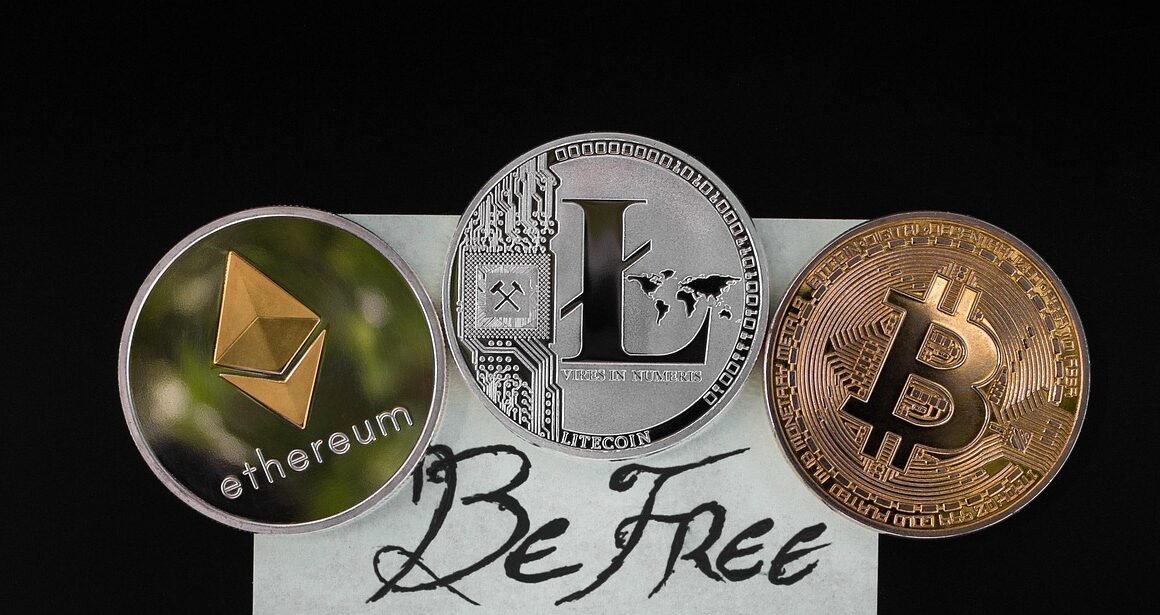Smart contracts are revolutionizing the way we conduct business, promising to automate agreements, reduce fraud, and increase transparency across various industries. This guide delves into the world of smart contracts, explaining their functionality, benefits, and real-world applications, offering a comprehensive understanding for anyone interested in this game-changing technology.
What are Smart Contracts?
Definition and Explanation
A smart contract is a self-executing contract written in code. It automatically enforces the terms of an agreement when predefined conditions are met. These contracts are stored on a blockchain, making them immutable and transparent. Think of them like digital vending machines – you input the right amount of money (cryptocurrency), and you automatically receive the desired product (service, asset, etc.).
How Smart Contracts Work
Here’s a breakdown of the typical workflow:
- Agreement: Two or more parties agree on the terms of a contract.
- Code Creation: These terms are translated into code, typically using languages like Solidity (for Ethereum) or similar languages for other blockchain platforms.
- Deployment: The code is deployed to a blockchain network, assigning it a unique address.
- Execution: When the predefined conditions are met, the smart contract automatically executes the specified actions.
- Immutability: Once executed, the transaction is recorded on the blockchain and cannot be altered, ensuring transparency and security.
Example: Imagine a smart contract for a rental agreement. The conditions might be the tenant paying rent on time. If the rent is paid by the due date, the smart contract automatically releases the digital key to the property. If not, the key remains locked, and late fees might be automatically deducted.
Benefits of Using Smart Contracts
Increased Security and Transparency
Smart contracts inherently offer enhanced security and transparency:
- Immutability: Once deployed, the code cannot be altered, reducing the risk of tampering.
- Transparency: All transactions are recorded on the blockchain, providing a clear and auditable history.
- Cryptography: Blockchain’s cryptographic techniques secure the agreement against unauthorized access and manipulation.
Reduced Costs and Increased Efficiency
Smart contracts eliminate the need for intermediaries, saving time and money:
- Automation: Automating contract execution reduces manual overhead and administrative costs.
- Elimination of Intermediaries: Removing the need for third-party brokers, escrow services, or lawyers reduces fees.
- Faster Transactions: Execution is automated and instantaneous, leading to faster transaction speeds.
Improved Trust and Reliability
The inherent nature of smart contracts fosters trust and reliability:
- Enforceability: The code dictates the terms, and execution is guaranteed upon condition fulfillment.
- Predictability: The predetermined rules provide clear expectations for all parties involved.
- Decentralization: Distributed across the blockchain network, making them resistant to censorship and single points of failure.
Statistics: Studies show that companies adopting blockchain technologies, including smart contracts, can see a potential reduction in operational costs by up to 10-20%.
Real-World Applications of Smart Contracts
Supply Chain Management
Smart contracts can track goods from origin to delivery, ensuring transparency and accountability:
- Tracking & Traceability: Monitor the movement of goods, verifying their authenticity and origin.
- Automated Payments: Trigger payments automatically upon delivery confirmation.
- Inventory Management: Optimize inventory levels and reduce waste by tracking demand in real-time.
Example: A food distributor can use a smart contract to automatically pay farmers when produce is delivered to a processing plant, eliminating delays and ensuring fair compensation.
Financial Services
Smart contracts can revolutionize lending, insurance, and other financial operations:
- Decentralized Finance (DeFi): Enable peer-to-peer lending, borrowing, and trading without intermediaries.
- Automated Insurance Claims: Automatically process insurance claims when pre-defined events occur (e.g., flight delays).
- Secure Payments: Facilitate secure and transparent cross-border payments.
Example: A decentralized lending platform uses smart contracts to match borrowers with lenders, automatically managing loan terms and repayments.
Healthcare
Smart contracts can secure and manage patient data, streamline processes, and improve efficiency:
- Secure Data Sharing: Enable patients to control access to their medical records.
- Automated Billing: Automatically process insurance claims and payments.
- Drug Traceability: Track pharmaceuticals throughout the supply chain to prevent counterfeiting.
Example: A smart contract can grant a doctor temporary access to a patient’s medical records upon the patient’s explicit consent, ensuring data privacy and security.
Voting Systems
Smart contracts can create secure and transparent voting systems, preventing fraud and manipulation:
- Secure Voting: Ensure that each vote is unique and cannot be tampered with.
- Transparent Audits: Provide a public record of all votes, allowing for transparent audits.
- Increased Participation: Facilitate remote voting and increase voter turnout.
Example: A government can use a smart contract-based voting system to allow citizens to cast their ballots securely and remotely, ensuring fair and verifiable elections.
Challenges and Limitations
Complexity and Bugs
Smart contracts can be complex to develop, and bugs can have serious consequences:
- Coding Errors: Even small coding errors can lead to significant financial losses.
- Security Vulnerabilities: Smart contracts are susceptible to hacks and exploits if not properly secured.
- Scalability Issues: Blockchain networks can sometimes struggle to handle large transaction volumes.
Tip: Rigorous testing and auditing are crucial before deploying any smart contract to a live blockchain network. Employ security experts to review code for potential vulnerabilities.
Legal and Regulatory Uncertainty
The legal status of smart contracts is still evolving in many jurisdictions:
- Enforceability: The legal enforceability of smart contracts may vary depending on the jurisdiction.
- Regulatory Frameworks: Clear regulatory frameworks are needed to address issues like taxation and liability.
- Dispute Resolution: Mechanisms for resolving disputes related to smart contracts are still being developed.
Actionable Takeaway: Consult with legal professionals to ensure that your smart contracts comply with applicable laws and regulations.
Dependency on Blockchain
Smart contracts are inherently tied to the blockchain technology they reside on:
- Blockchain Dependency: The performance and reliability of a smart contract depend on the underlying blockchain network.
- Gas Fees: Transaction fees (gas fees) on some blockchains can be high, making certain smart contract operations costly.
- Immutability Limitations: While immutability is a benefit, it also means that correcting errors after deployment can be challenging or impossible.
Conclusion
Smart contracts hold immense potential to transform industries by automating agreements, increasing transparency, and reducing costs. While challenges and limitations exist, ongoing development and adoption are paving the way for a future where smart contracts play a central role in how we conduct business and interact with each other. Understanding the fundamentals, benefits, and applications of smart contracts is essential for anyone seeking to leverage this revolutionary technology. Embrace continuous learning and stay updated with the latest developments in this rapidly evolving field.



